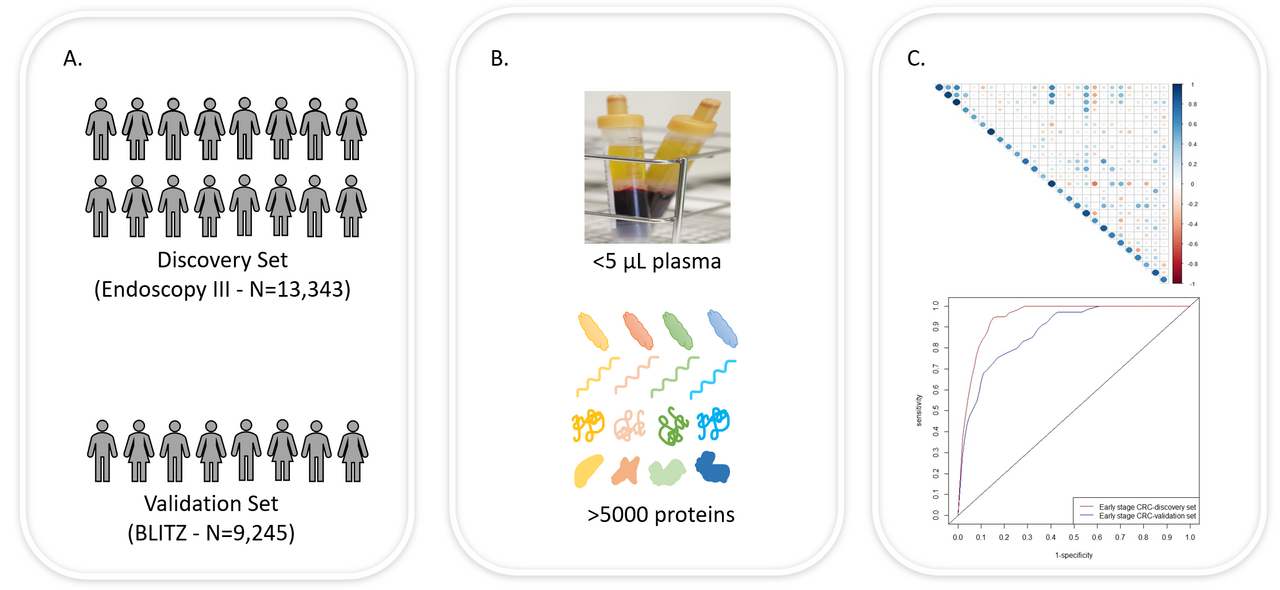Seed Funding Program 2023
NICE
Novel blood-based biomarker signatures for colorectal cancer early detection
Coordinator

Megha Bhardwaj
Clinical Epidemiology and Aging Research, DKFZ
Detailed description
Colorectal cancer (CRC) is the third most common cancer and the second leading cause of cancer mortality globally. Screening programs have shown to reduce CRC incidence and mortality, however, the participation rates in established screening offers (colonoscopy, stool-based tests) are often low. Minimally invasive blood-based protein biomarkers could be an efficient alternative or supplement with more widespread adherence in population-based screening for CRC. In recent years, a large number of studies have evaluated the potential of minimally invasive blood-based biomarkers for CRC diagnosis. Nevertheless, comprehensive reviews disclose a lack of validation of protein signatures in external independent screening cohorts and, additionally, lack of signatures specific for early-stage CRCs. Among the very few studies that performed both internal and external validation, three of our previous research studies found promising results. Most recent rapid developments in proteomics technology opened new avenues for more comprehensive proteomic profiling. Building upon our pioneering preliminary work, this research project will carry out prospective evaluation of a broader spectrum of more than 5000 proteins and has set following objectives:
- To derive and validate optimized algorithm for detecting early-stage CRC cases in prospectively selected samples from the unique biobank of screening participants.
- To evaluate the performance of promising signatures from our preliminary work for detecting early-stage CRC cases.
- To comparatively evaluate the performance of blood-based biomarker signatures to stool-based FIT, immunochemical tests for the quantitative detection of blood in stool samples, for detecting early-stage CRC cases.
Project Overview:
A.Selection of participants from population based screening cohorts.
B.Application of next-generation proteomics for identifying targets associated with colorectal cancer.
C.Evaluation, verification, and validation of protein biomarkers specific for early-stage colorectal cancer detection.
